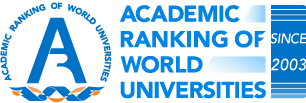UNESP - Universidade Estadual Paulista was created in 1976. UNESP is the most successful model of a multicampus university in Brazil. This unique characteristic allows intense and diversified activities in Sao Paulo, the most developed State in the country. Its influence can be recognized by the level of regional development where its campuses are located: one in the State capital and 22 others strategically distributed throughout the State. It has consolidated a project joining scientific, technological, economic, cultural and social development committed to democratic principles and clearly conscious of its status of a governmental institution, inserted and highly active in Brazilian society. UNESP's actions are focused in nearly every field of experimental and theoretical sciences such as: biological, health, engineering, communication, humanities, social sciences and arts, among others. The interaction of UNESP with different sectors of society exerts a strong influence on its social landscape. Its high qualification level can be confirmed through the expressive number of former students inserted in the professional market, as well as its top position in Brazilian national ranks regarding all fields where it is present. Following the worldwide trend and sure to be prepared for that, Unesp is now, more than ever, looking for new boundaries to cross and challenges to face, by signing new agreements with top quality Institutions throughout the world. UNESP is a respected institution with accomplished members, fully-accredited programs and strong research base-and these will remain its priorities. UNESP is one of the largest and most important Brazilian universities, with distinguished achievements in teaching, research and extension services. UNESP is supported by State funds and along with USP (Universidade de São Paulo) and UNICAMP (Universidade Estadual de Campinas) offers free public higher education in Sao Paulo State. Technical and Scientifical Cooperation - UNESP receives financial aid from the main research supporting agencies in the country, such as: FAPESP, CNPq, CAPES and FINEP. These resources are guaranteed by agreements that allow faculty members and students to participate in exchange programs, development of academic projects and services. These agreements are signed with national and foreign universities, institutes, associations, foundations, city halls, Government bureaus, ministries, federal and state agencies and private companies, adding up to 300 partnerships that increase annually.

